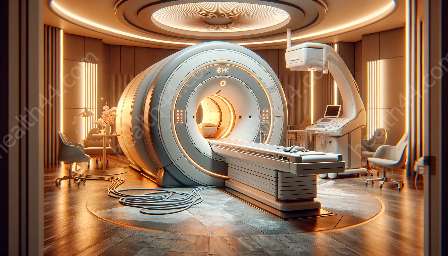Magnetic Resonance Imaging (MRI) machines have significantly transformed the field of medical diagnosis and treatment, providing invaluable insights into various clinical conditions. Their advanced technology and versatility make them indispensable for healthcare professionals. In this article, we will explore the different clinical applications of MRI machines and their profound impact on modern medicine.
The Role of MRI Machines in Diagnostic Imaging
MRI machines play a crucial role in diagnostic imaging by providing detailed images of the body's internal structures, including organs, tissues, and bones. Unlike traditional X-rays or CT scans, MRI machines use powerful magnets and radio waves to generate clear and high-resolution images without exposing patients to ionizing radiation, making them a safer option for diagnostic imaging.
One of the primary clinical applications of MRI machines is in neuroimaging, where they are used to detect and visualize abnormalities in the brain and spinal cord. MRI scans are instrumental in diagnosing conditions such as brain tumors, multiple sclerosis, and traumatic brain injuries, allowing healthcare providers to make accurate and timely treatment decisions.
Cardiovascular Imaging and Functional MRI
In cardiovascular medicine, MRI machines are utilized for imaging the heart and blood vessels, providing essential information about cardiac anatomy, function, and blood flow. Cardiac MRI plays a critical role in diagnosing heart conditions such as coronary artery disease, structural defects, and evaluating cardiac function following a heart attack or other cardiac events.
Moreover, functional MRI (fMRI) is a specialized application of MRI technology that enables the mapping of brain activity by measuring changes in blood flow. This technique is valuable in neurology and cognitive research, allowing scientists and clinicians to understand brain function in both healthy individuals and patients with neurological disorders.
Orthopedic and Musculoskeletal MRI
For orthopedic and musculoskeletal conditions, MRI machines offer unparalleled capabilities in visualizing soft tissues, ligaments, tendons, and joints. Orthopedic surgeons and sports medicine specialists rely on MRI imaging to assess conditions such as ligament injuries, arthritis, and sports-related injuries, guiding treatment plans and surgical interventions.
Additionally, MRI machines are indispensable for evaluating spinal disorders, including disc herniation, spinal stenosis, and spinal cord injuries, enabling precise diagnosis and personalized treatment strategies for patients with back and neck pain.
Oncology and Cancer Imaging
In the field of oncology, MRI machines are indispensable for cancer imaging, providing detailed information about tumor size, location, and involvement of adjacent structures. Oncologists use MRI scans to stage cancer, monitor treatment response, and assess the effectiveness of chemotherapy or radiation therapy.
Furthermore, advanced MRI techniques such as diffusion-weighted imaging and magnetic resonance spectroscopy enhance the diagnostic accuracy in oncology, contributing to improved patient outcomes and personalized cancer care.
Emerging Applications and Innovations
Continual advancements in MRI technology have led to the development of innovative applications, such as functional connectivity MRI for studying brain networks, diffusion tensor imaging for assessing white matter integrity, and dynamic contrast-enhanced MRI for evaluating tumor vascularity.
Moreover, research in molecular imaging with MRI nanoparticles holds promise for early detection of diseases and targeted therapies, paving the way for personalized medicine and precision healthcare.
Conclusion
In conclusion, the clinical applications of MRI machines encompass a wide range of medical specialties, revolutionizing diagnostics, treatment planning, and therapeutic monitoring across various clinical conditions. The exceptional imaging capabilities and non-invasive nature of MRI technology make it an essential tool in modern healthcare, driving advances in medical devices and equipment for the benefit of patients worldwide.


